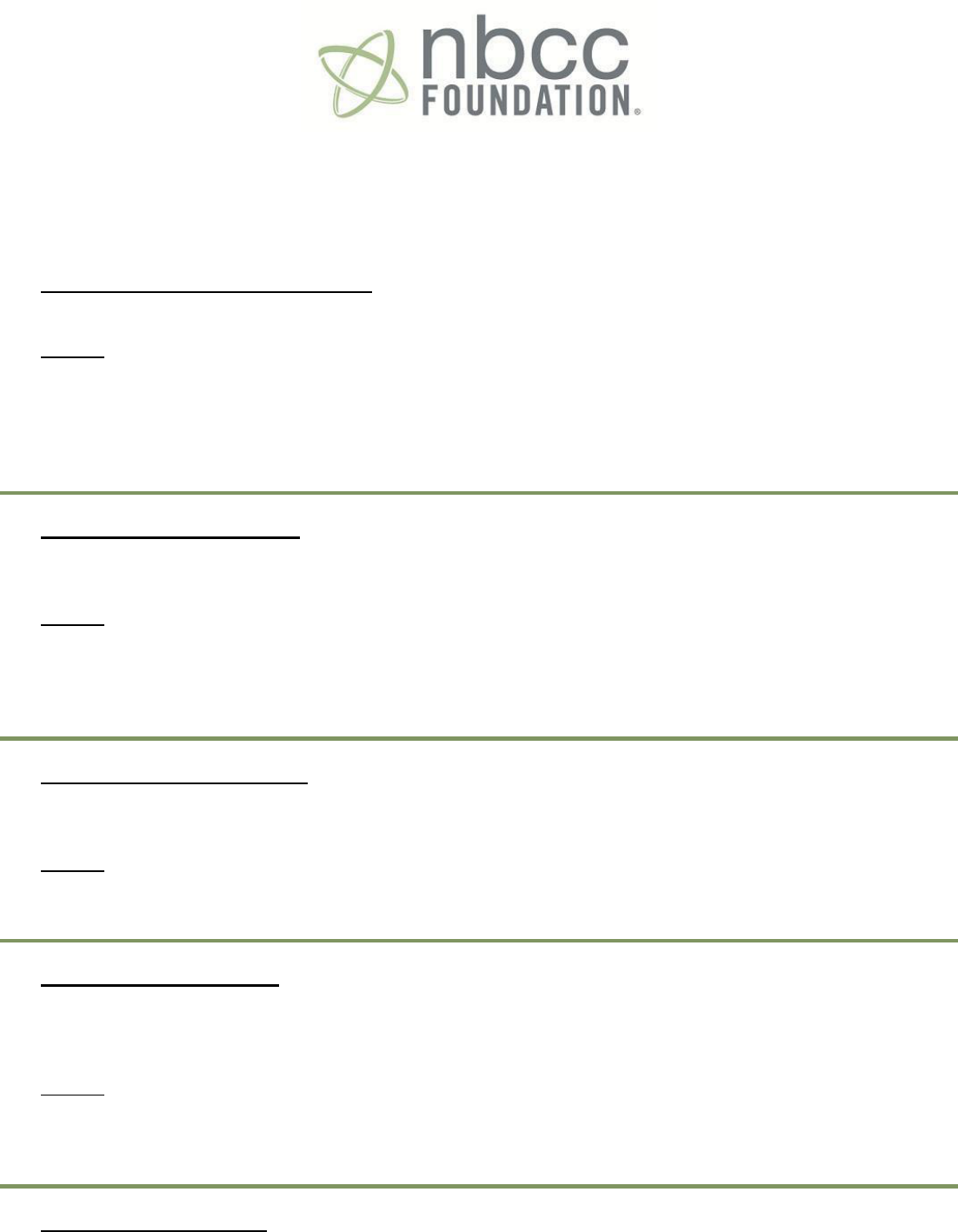
Building Professional Excellence- Part 3
Session 1: Responding to Subpoenas and Requests for Court Appearances
Webinar Follow-up Question and Answer Session with Dr. Theodore P. Remley Jr.
1. Question from Rosemary Thompson
Can you squash a subpoena if you don't have enough information on the client?
Answer
It is possible to file a petition with a court to quash a subpoena. Usually an attorney has to do that because
non-attorneys do not know how to file legal petitions. A counselor not having enough information about a
client would not be sufficient grounds for asking a judge to quash a subpoena. Legitimate grounds might
be that the information requested is privileged by state or federal statute, that the subpoena was sent solely
to harass the counselor, or the attorney who issued the subpoena did not have the authority to do so.
2. Question from Daniel Burrell
Is there a sample document that would outline to a client before counseling begins what we are willing to
do legally?
Answer
Many counselor-client agreement forms I have seen include a statement that the counselor will not appear
in court on behalf of a client, and some even set a fee amount if the counselor is forced to appear in court
via a subpoena. But as I said in the webinar, such fees are not enforceable. Clients do not have to pay
them if they do not want to.
3. Question from Paula Franklin
If you tell client, "I am not your court advocate, that is not my role," how does that change when you are
paid to attend court?
Answer
You can still send an invoice for services rendered if you have to appear in court, but as I said in #2 above,
the clients do not have to pay such fees.
4. Question from Shirley Lee
I've been subpoenaed to be a character witness for a teacher at my school who has been accused of
sexual improprieties with a student whom he coaches. I don't want to be a character witness for this
person. What recourse do I have?
Answer
You, or the school board attorney, should contact the attorney for the teacher and explain you do not want
to serve as a character witness for the teacher. That should lead to the teacher’s attorney withdrawing the
subpoena.
5. Question from C. Tanaka
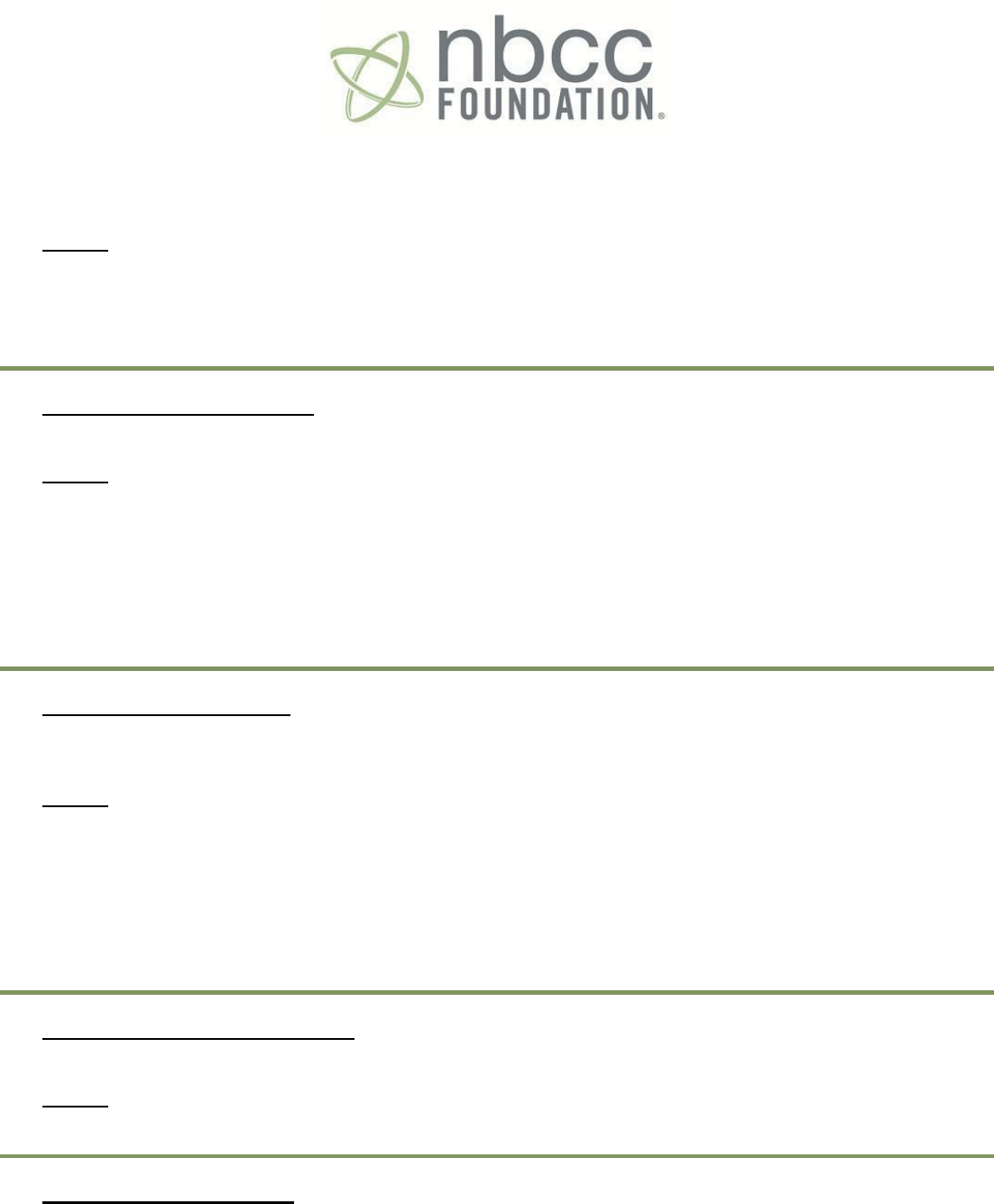
What if you have been asked to complete an evaluation and there is no therapeutic relationship and you’re
asked "your opinion"?
Answer
If you have evaluated an individual for some reason and have not provided counseling services to that
person, you could be subpoenaed to explain the evaluation document you wrote. In most circumstances,
you could send an invoice to the attorney who subpoenaed you, but as I said in #2, you could not force
payment.
6. Question from Marie Holland
How does one become an expert witness? Is there are certification or training for this title? Thank you!
Answer
I do not know of any type of expert witness certification. However, if you want to be a child custody
evaluator, you should go through a training program for doing that. If you want to do rehabilitation
evaluations, you should be a Certified Rehabilitation Counselor. In order to serve as an expert witness, the
attorney hiring you has to make a motion for the judge presiding in the case to approve you as an expert.
When that motion is filed, the other side’s attorney will have an opportunity to object and to cross examine
you arguing that you are not qualified to be an expert. The judge in the case will then rule either that you
are qualified as an expert or you are not.
7. Question from April Milam
Can you talk a bit about the difference between a subpoena from an attorney and a court order as well as
options for responding to each? What are our obligations to respond to attorney subpoenas for records?
Answer
A subpoena is issued by an attorney, who is authorize to do so when a law suit has been filed. A
subpoena may or may not be valid, so counselors must consult with an attorney to determine whether to
respond. On the other hand, a court order is a direct order issued by a judge and always must be followed.
When counselors receive a subpoena for records, an attorney should be consulted to determine whether
the subpoena is valid. If it is valid, copies of the records must be provided to the attorney who issued the
subpoena. If the subpoena is not valid, the attorney who advised you it is not valid should contact the
attorney who issued the subpoena and inform that attorney that the records will not be provided.
8. Question from Jacquelyne Joens
Do you recommend getting an individual malpractice policy in addition to the clinic's policy?
Answer
Definitely. An agency’s policy protects the agency; not the individual counselor.
9. Question from Erin Collins
The line between counselor and advocate does not seem so cut and dry to me when I am working with a
victim of domestic violence. Clients may need help filing protective orders and come to me for that because
I know how to help and because they trust me already. Can you comment a little on this?
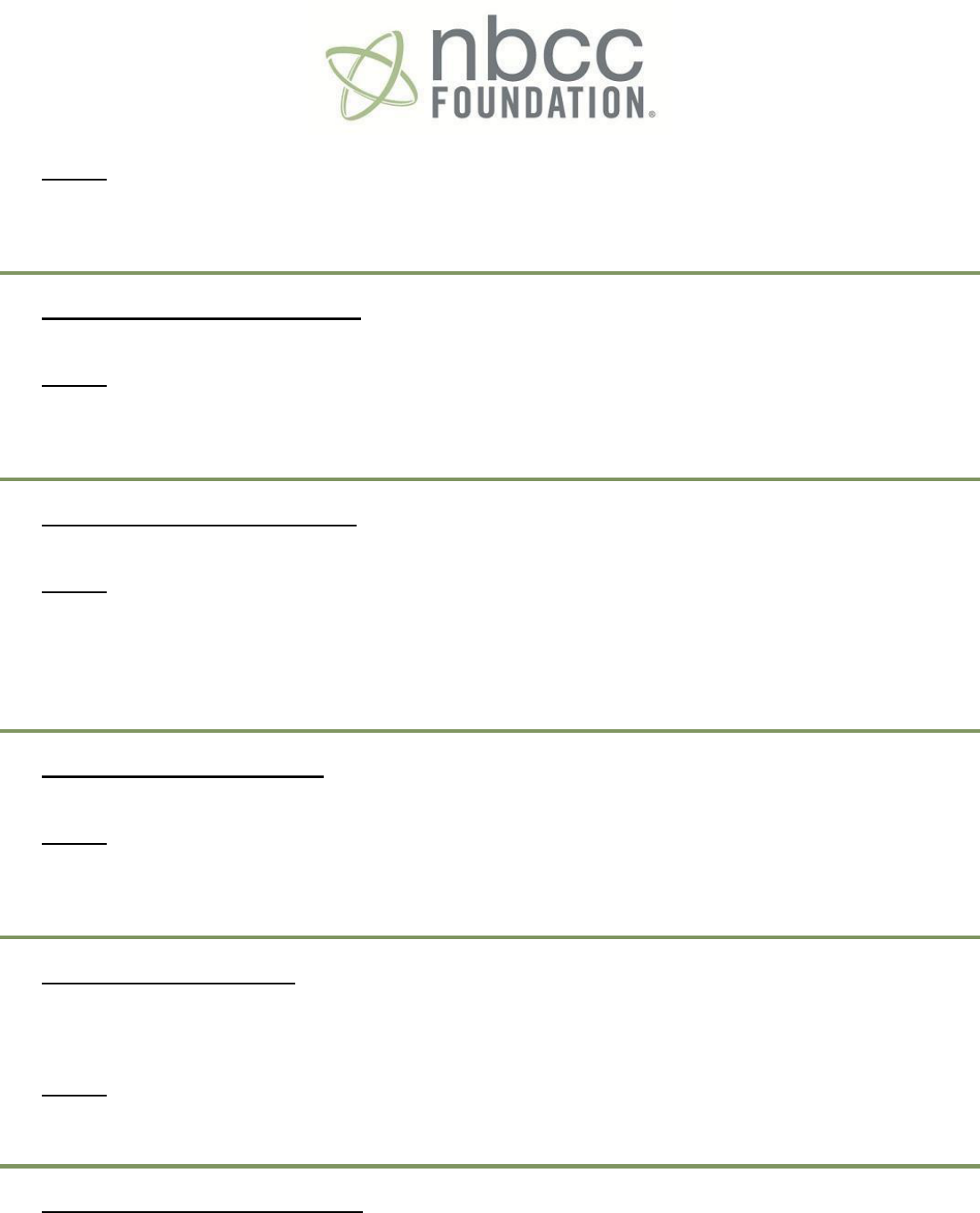
Answer
If you are working as a counselor in an advocacy agency, perhaps you would help clients seek protective
orders. However, if you are in private practice, I think the counselor’s role would be to inform clients how to
request protective orders; but not be involved in the process.
10. Question from Sister Theresa Elitz
Is it advisable to fill out disability reports? Is it advisable to write reports to lawyers?
Answer
I’m not sure what the term disability reports means. If your role is evaluator and you are being paid by the
client or someone else to do an evaluation, then you would deliver the evaluation to the individual who paid
you to produce it.
11. Question from Roxanne Davidson
How can I obtain a list of child custody evaluator supervisors in Louisiana?
Answer
I’m not sure there is a list of child custody evaluators available in any state. If you are seeking a child
custody evaluator to supervise your work and help you learn how to be a child custody evaluator yourself,
then I suggest you contact the local clerk of the court and ask for the names of local child custody
evaluators. If that is not productive, then I suggest you ask local well-known divorce lawyers for the names
of local child custody evaluators they know.
12. Question from Sheri Severson
What things can a counselor do to prepare themselves for court if they are subpoenaed?
Answer
If you are in private practice, hire an attorney to advise you. If you work for someone else or an agency,
ask your direct supervisor to provide you with legal advice to prepare you for appearing in relation to the
subpoena.
13. Question from Ryan Hepler
It is my understanding that as a counselor we do not have to respond to a subpoena. We would only have
to respond to a court order to attend court. What is your insight into this? Additionally, what about release
of information or lack of release of information and participating in court proceedings?
Answer
If a subpoena is valid, you do have to respond or appear. In my opinion, you need to seek legal advice to
determine whether the subpoena is valid and whether you need to respond or appear.
14. Question from Kathryn Henderson
I often have students interested in learning about what resources are available for specialized training in
being an expert witness. Are there any associations or other groups that provide reputable training?
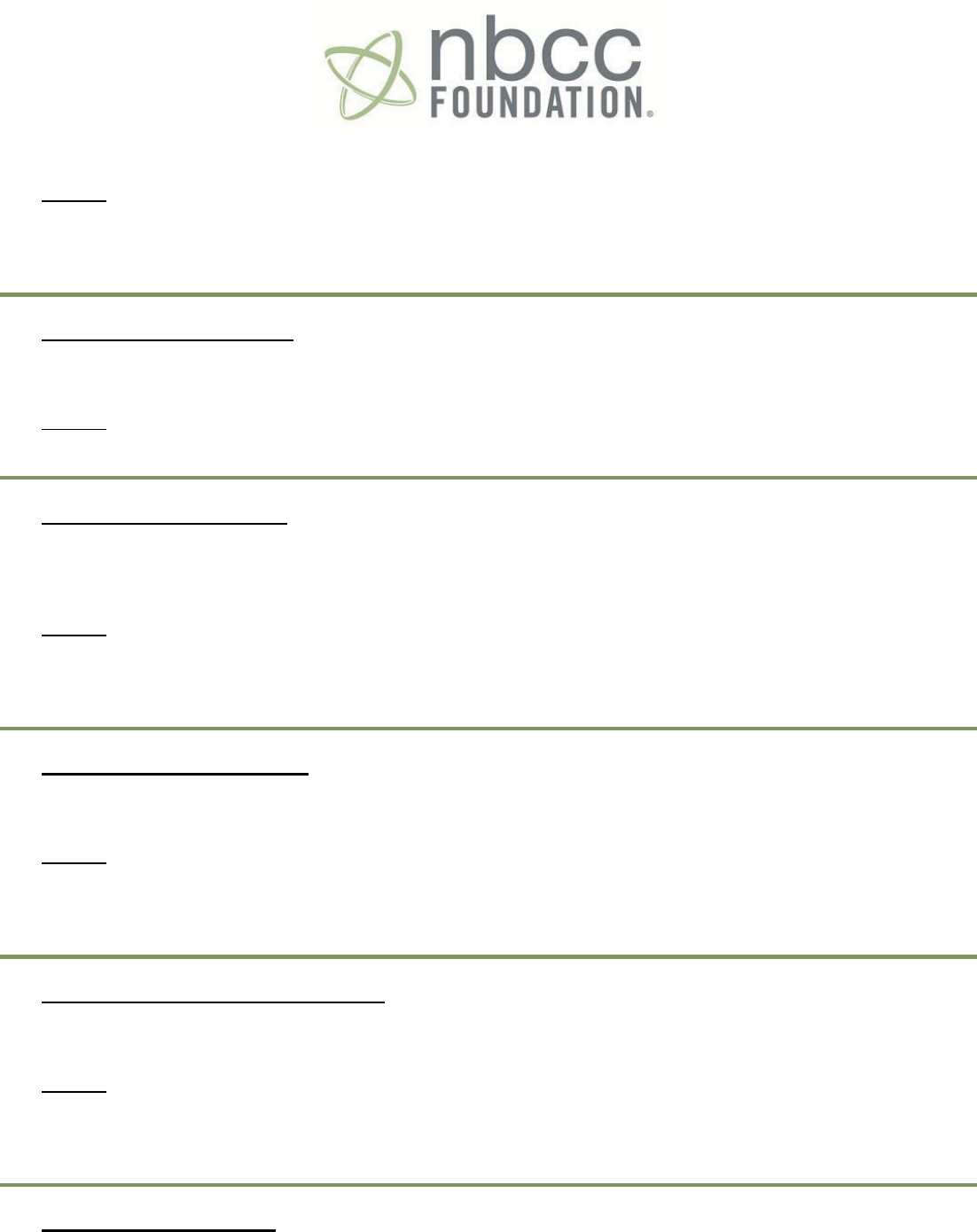
Answer
The primary areas for expert testimony for counselors is child custody evaluator or rehabilitation expert.
There are associations for both specialties that could be contacted if training in those areas is something
you would like to have.
15. Question from Anonymous
What is a counselor's obligation to provide records of sessions for a suit about a car accident when the
client is not consulting about said accident? (In the case that the records are subpoenaed).
Answer
An attorney would have to review the circumstances and state and federal laws and advise you.
16. Question from Ashley Cho
I am somewhat confused on what an expert witness is. Do counselors get to decide whether or not they will
serve as an expert witness, or this is a role that we have to fulfill, even if it is something that we are not
comfortable fulfilling?
Answer
If you have not agreed to be an expert witness (and are not being paid to be one), then you would be a fact
witness. If you are a fact witness and are asked your opinion, say you don’t have enough information to
form a professional judgement about the matter.
17. Question from Megan O'Neill
What if you answer with "I do not have enough information..." several times? Is there a limit to how many
times you can use that answer?
Answer
Once you have made that statement, the judge will tell you what to do from there. Always do what a judge
says. If he/she tells you that you have to render an opinion, do so…with as much restraint as you can
muster. You can never get into trouble when you have followed a judge’s order.
18. Question from Marjorie Hendrickson
Very excellent presentation. Does a counselor have to have a court order to give any information in a
deposition or even to your own organization’s lawyer?
Answer
You can always trust and rely on your organization’s lawyer. The only time you should be cautious is if
your organization’s lawyer seems to be trying to take a position that you did something without the
organization’s approval.
19. Question from Larry Fritz
How does one choose an attorney to consult with for licensing board complaint, lawsuit, etc.?
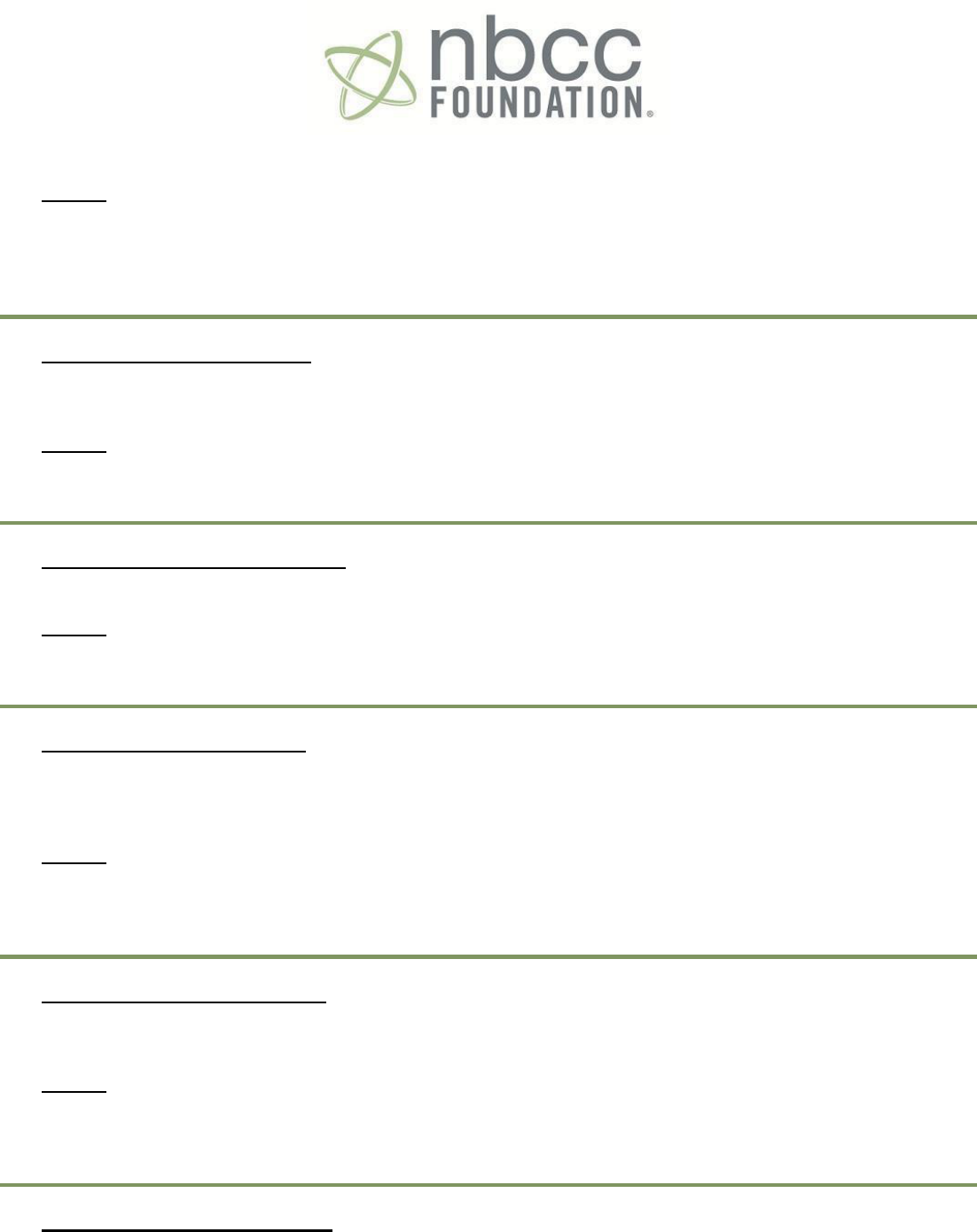
Answer
Your best bet is to find an attorney who specializes in representing professionals who have been accused
of wrong-doing. Those attorneys are often found in the state capital city. If an attorney representing
physicians, lawyers, accountants, or other professionals who have been accused of wrong-doing, they can
represent counselors as well.
20. Question from Maxine Notice
Any pointers in regard to managing documentation security in case of death. Can your records be used
post mortem in court?
Answer
State laws determine how records of deceased clients must be handled. You must consult with a lawyer in
your state.
21. Question from Madelyn Esposito
Can personal notes also be subpoenaed? How can we ensure protection of personal notes?
Answer
Yes, personal notes can be subpoenaed. All notes are vulnerable to subpoenas. You cannot protect
personal notes if they are validly subpoenaed.
22. Question from Christine Hall
If you work in private practice, does having insurance ensure an attorney is going to accept your case? I.E.
How do I go about getting an appropriate attorney if my company or licensure or insurance does not supply
one?
Answer
If you have professional liability insurance, your insurance company will select a lawyer for you. In most
cases, they will hire the best qualified lawyer to represent you. However, if you are not satisfied with their
choice, you can request a different lawyer.
23. Question from Tayler Shannon
Is there a good resource that you know of that guides counselors in what minimum info should be
documented when it comes to suicidal ideation-type situations?
Answer
I don’t know of such a publication. However, you should write down everything you and the client (and
anyone else involved) did or said leading up to your determination that a client might be at risk for suicide
and any actions you took after making that determination.
24. Question from Crystal Jacquot
Would you please address privileged communication as it relates to counselors?
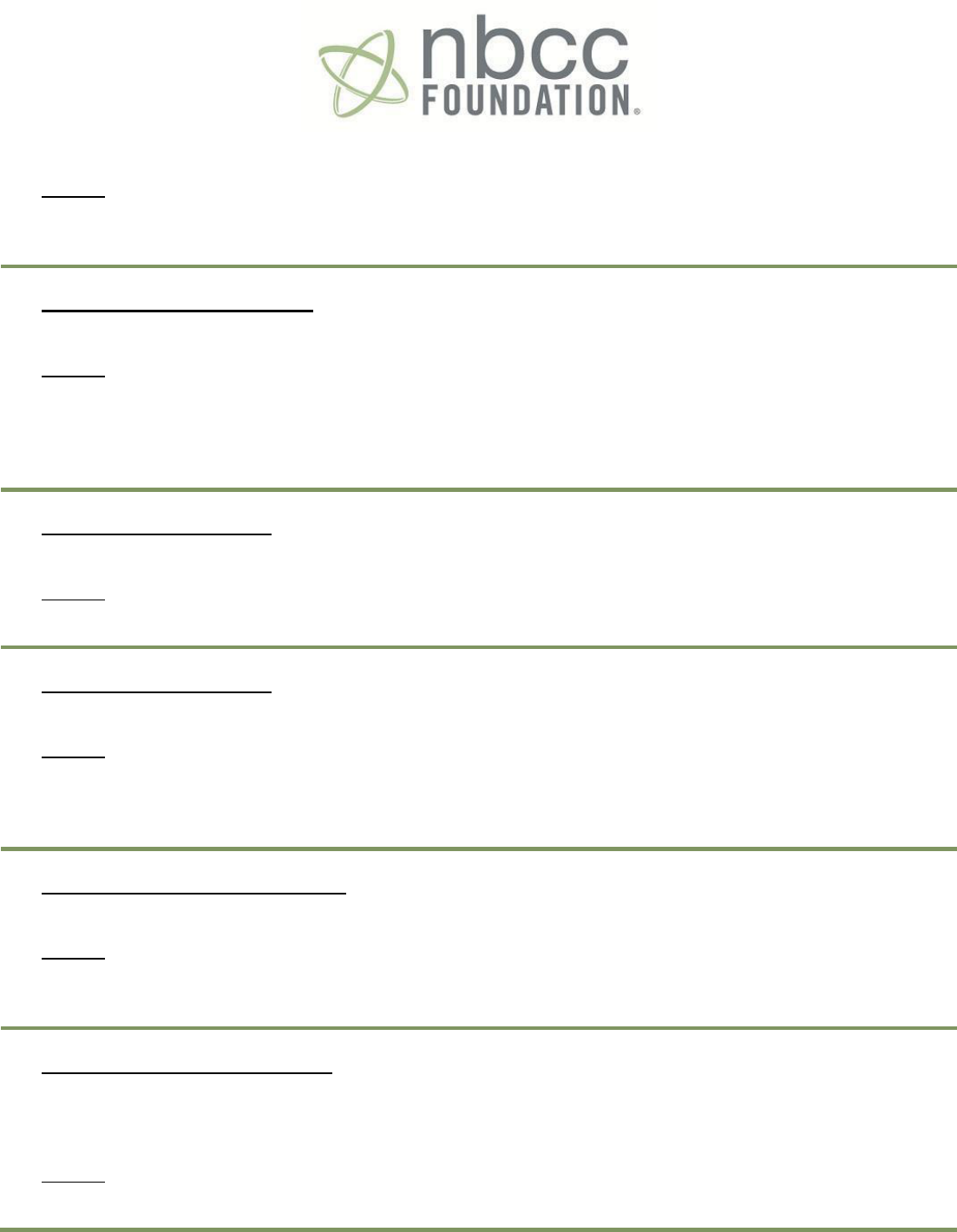
Answer
In most states, clients have privileged communication with licensed counselors. However, in some states,
there is no privilege.
25. Question from Patricia Kryger
Given that our notes can be subpoenaed, how detailed should our progress notes be?
Answer
Your progress notes should do what the term implies, note progress toward meeting counseling goals that
have been established and written down. These notes must be provided to insurance companies for
reimbursement. I recommend not writing any other notes that are not necessary in order to render quality
professional services to a client.
26. Question from Aynur Fox
How do you know if you have a privilege with your client?
Answer
See #24 above.
27. Question from Lori Malec
How often are court orders utilized when clinicians do not respond to a subpoena?
Answer
I think any lawyer who issued a valid subpoena would seek a court order in the event a counselor refused
to appear or provide requested records. However, I don’t know how often court orders are sought when
counselors do not provide records or fail to appear in response to a court order.
28. Question from Shubha Chatterjee
In order to follow ethics do you think that there should ever be a compromise?
Answer
I’m not sure how to respond to this question. I am in favor or mediation and compromise, but when people
have filed lawsuits, usually compromise efforts have failed.
29. Question from Dr. Reginald Holt
In other conferences, I was informed that a subpoena is not the same as a court order signed by a judge;
therefore, the expectations of responding to a subpoena are not the same (especially if the request is for
copies of the clinical record).
Answer
See #7 above.
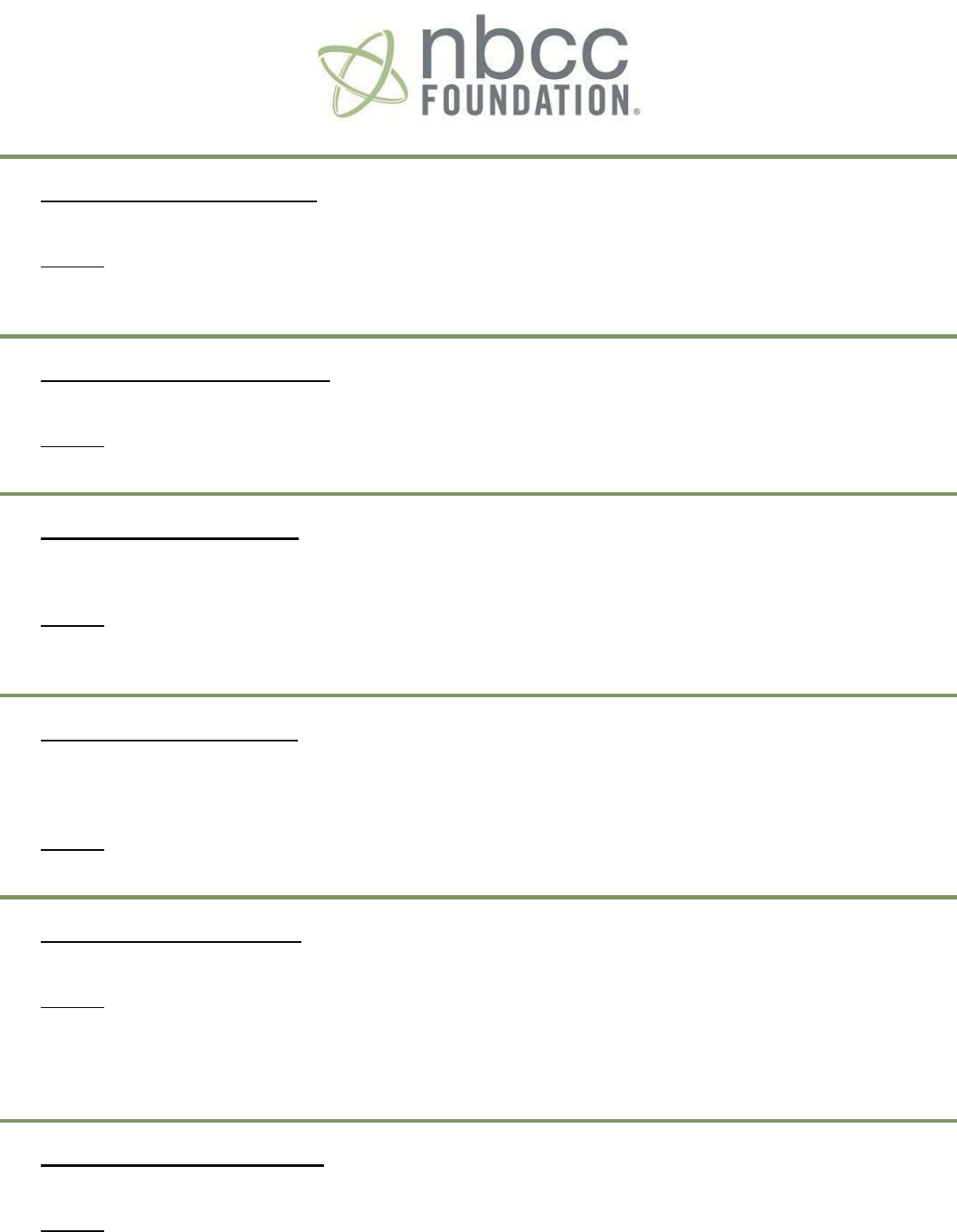
30. Question from Thomas Nowak
Should we ask for a release of information to be signed by the client prior to any sort of testimony?
Answer
Yes. However, in some situations, even if the client does not give you a release, you must provide
information.
31. Question from Denise Matherne
Can you talk about how to become privileged?
Answer
See #24 above.
32. Question from Perry Francis
Ted, thanks for the information. Can you say more about not providing legal or forensic evaluations for
current clients?
Answer
Ethical standards require that counselors not evaluate individuals who are current or former clients. When
you are a client’s counselor, you are biased in favor of that person. An evaluator must be unbiased.
33. Question from Willie Greene
What about if you work on a 24/7 mobile crisis team which is very prevalent here in the State of GA? They
have to rely on cellphones for gathering information and calling clients while they are enrooted to the
clients' home.
Answer
There is no problem with cellphone use in such situations.
34. Question from Daniel Burrell
What about the NY requirement to report clients who own firearms if they appear unstable?
Answer
Counselors must always ethically and legally take action to prevent harm if they determine a client may be
dangerous to self or others. This statute defines for you in NY that a person who owns a firearm and
appears unstable could be a danger to self or others. I see nothing wrong with such a statute. Counselors
must comply.
35. Question from Jessenith Colon
What are some justified reasons to tell a client for not going to court?
Answer
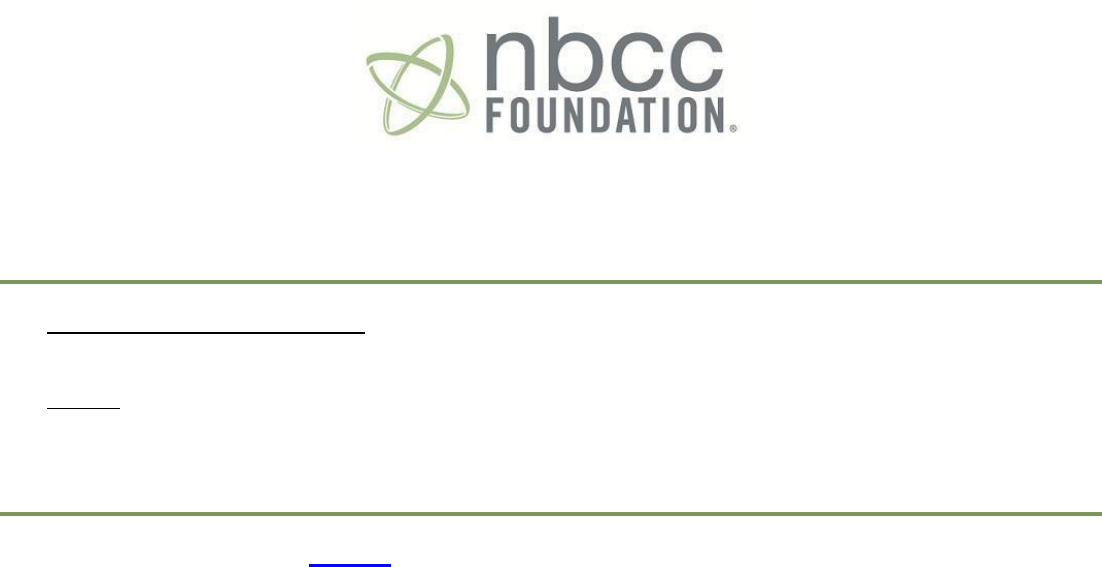
Reasons could include that a counselor’s job is to counsel, not be an advocate, that counselors cannot be
away from work for extended periods or time, but most importantly that the testimony of a client’s counselor
is not very helpful to clients because counselors are seen to be biased in favor of their clients.
36. Question from Shannon Slater
What if I as a counselor get a subpoena not from my plaintiff client but from the defendants' attorney?
Answer
Quite often a subpoena comes from the other attorney…not your client’s. Sometimes such subpoenas are
valid and must be complied with; other times they are not and should not be complied with. You always
should legal advice in such situations.
Enjoy our webinars? Please support our efforts. Donate now.
